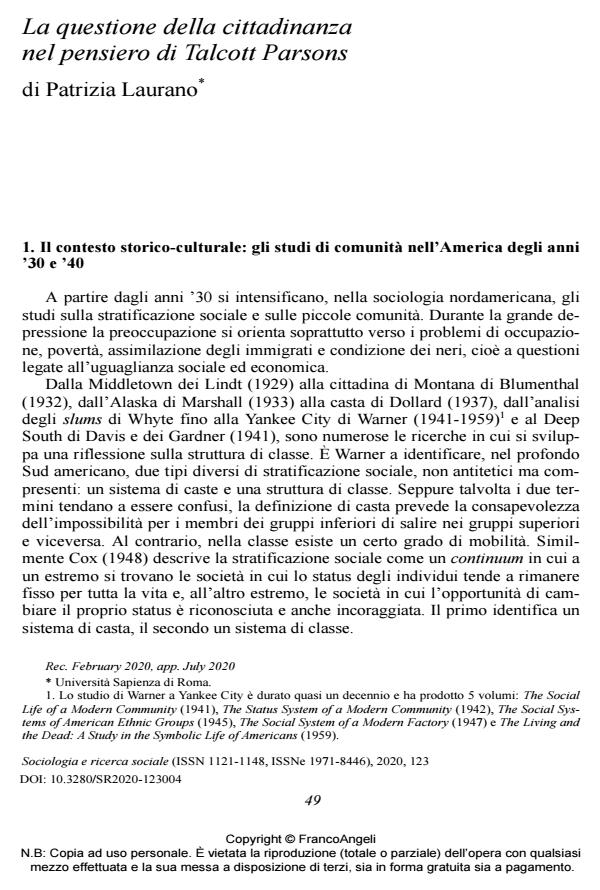Citizenship in the works of Talcott Parsons
Journal title SOCIOLOGIA E RICERCA SOCIALE
Author/s Patrizia Laurano
Publishing Year 2020 Issue 2020/123
Language Italian Pages 18 P. 49-66 File size 284 KB
DOI 10.3280/SR2020-123004
DOI is like a bar code for intellectual property: to have more infomation
click here
Below, you can see the article first page
If you want to buy this article in PDF format, you can do it, following the instructions to buy download credits

FrancoAngeli is member of Publishers International Linking Association, Inc (PILA), a not-for-profit association which run the CrossRef service enabling links to and from online scholarly content.
This paper analyzes ethnic pluralism and integration based on Talcott Parsons’ works. In a 1965 essay on «full citizenship» of Black Americans in the US, Harvard’s sociologist identifies the attainment of a minority ethnic group’s social rights as the only way to achieve full inclusion. This analysis shows a less conservative and conformist side of the scholar, compared to the more common profile associated with the great American theorist who proposes a modern, although largely unrealized, vision of the future.
Patrizia Laurano, La questione della cittadinanza nel pensiero di Talcott Parsons in "SOCIOLOGIA E RICERCA SOCIALE " 123/2020, pp 49-66, DOI: 10.3280/SR2020-123004